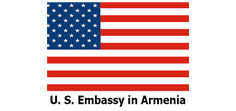“Dear people, if you decide we have to go, we will go. If you decide we have to stay, we will stay.”
|
Prime Minister Nikol Pashinyan has often made such promises, but the events following the elections show that in a number of communities the defeated ruling force is trying to prevent the formation of new community authorities through arrests, threats or sabotage.
On December 5, local elections were held in 36 enlarged communities of Armenia. The ruling Civil Contract Party was nominated in 35 of the communities․ The enlarged community of Sevan was an exception․ In 24 of these communities, the ruling party won in the elections. Moreover, in 15 of them, the ruling party won more than half of the votes, and had the opportunity to take over the leadership of the community without obstacles.
In the other communities, the Civil Contract Party either lost the elections or its victory was not unequivocal (it received less than 50% of votes and can assume leadership by forming a coalition). The events following the elections suggest that the ruling party had difficulty accepting its (possible) defeat in some communities and created obstacles to the formation of community authorities.
Thus, the Mamikon Aslanyan Alliance led by former mayor Mamikon Aslanyan (38.7%) received the most votes out of 10 political forces nominated in Vanadzor. It was followed by the Civil Contract Party with 25%, and the Workers’ Socialist Party of Armenia with 14.5% of the votes. This meant that Mamikon Aslanyan’s chances of becoming the head of the enlarged community of Vanadzor were quite high.
However, a few days after the election, on December 15, Mamikon Aslanyan was detained, and the next day he was arrested on charges of abuse of office, overstepping his authority and fraud. According to the Investigative Committee, the former mayor changed the land use purpose at several addresses in Vanadzor in the last 5 years, overstepping his authority. It is noteworthy that this criminal case was initiated on September 14, but Aslanyan was arrested only after the elections, when it became clear that he was the most probable candidate for mayor of the third largest city in Armenia.
All the parties nominated in Vardenis received enough votes to have representatives in the Council of Elders, but the Civil Contract Party received the most votes – 46․1%. It was followed by Aharon Khachatryan Alliance (37․3%) and United Vardenis Party (16․5%).
Two days after the elections (on December 7), the Aharon Khachatryan Alliance and the United Vardenis Party issued a joint statement, announcing that they were going to form a coalition and take over the city leadership together. The name of former mayor Aram Harutyunyan, who led the United Vardenis Party list, was mentioned as the most probable candidate for the mayor.
Two days after the announcement, Aram Harutyunyan was charged with a number of offenses under the Criminal Code (forgery of documents, stamps, seals, forms, sale or use of vehicle registration numbers, fraud and abuse of office). Harutyunyan was arrested on the same day.
By the way, after the elections, the first session of the Council of Elders in these two communities was supposed to take place on December 20, during which the community leaders were to be elected, but the sessions have not taken place yet, and the issue of electing a mayor in Vanadzor and Vardenis is still pending.
As a result of the elections in Talin, the Civil Contract Party received 46.6% of the votes. The other three parties, Zartonk, Hayk and Mer Hamaynk, received 26.7, 15 and 11.7 percent of the votes, respectively. This meant that the Civil Contract party’s mayoral candidate needed another vote of the Council of Elders to assume the position of head of community. Despite this, the other three parties issued a statement two days after the election, stating that they were going to form a coalition (53.4% in total) and jointly lead the community, and would nominate and support the representative of Hayq Party as a candidate for mayor of Talin. This meant that the votes of the members of the Council of Elders were distributed as follows: Civil Contract Party – 10 votes, candidate of the other parties – 11 votes. However, during the first session of the Council of Elders on December 17, Karen Grigoryan, the joint candidate of the parties, withdrew his candidacy and, although the coalition parties nominated a new candidate, Karen Grigoryan voted for Tavros Sapeyan, the candidate of the Civil Contract Party, and the latter was elected mayor of Talin enlarged community with a difference of one vote.
By the way, during the whole session of the Council of Elders, the building of the Talin community hall was surrounded by a large number of police forces, and even the journalists were prevented from entering the session hall of the Council of Elders.
Opposition candidates for the Council of Elders of Akhuryan enlarged community also alerted about such developments. The Civil Contract Party received 48․2% of the votes there, while the Akhuryan Alliance received 30%, and the Victory Alliance received 21․8% of the votes. The day after the elections, the latter made a statement about cooperation, according to which they were to form a joint local government in Akhuryan community. The Civil Contract Party would receive 13 seats in the Council of Elders, and the opposition alliances together – 14 seats. The joint candidate of the opposition coalition was Artsruni Igityan from the ARF.
However, after this decision, the ARF “Shirak” regional committee issued a statement, according to which the ruling party is trying to change this distribution of votes in its favor, using all available means – use of force, falsification, threats and lies in order to force the council members to change their decision and to vote for the candidate of the Civil Contract Party. The candidate of the Civil Contract Party Albert Ayvazyan denied those accusations and insisted that the ARF Dashnaktsutyun was the one exerting pressure.
Finally, at the December 20 sitting of the Council of Elders, Artsruni Igityan, the joint candidate of the opposition, was elected head of the Akhuryan enlarged community with a 14/13 ratio of votes. Here, too, the session of the Council of Elders was controlled by a large number of police forces.
The post-election processes in Vedi and Amasia were also quite heated.
In the enlarged community of Vedi, the “My Powerful Community” party received 44․1% of the votes, the Civil Contract Party – 39․1%, and the Republic Party – 16․8%. However, on December 16, all the candidates for the Council of Elders from the Civil Contract and Republic parties submitted a self-withdrawal application, by which they actually aborted the process of forming local government. Garik Sargsyan, who led the list of the Civil Contract Party, justified this decision by the fact that they and the Republic Party failed to form a coalition, due to which they found it expedient to resign. As a result, new local elections will be held in the Vedi enlarged community.
The situation in Amasia was a little different. Here the votes were distributed as follows: Civil Contract Party – 38.8%, Amasia-Arpi Alliance – 38.3%, and the Republican Party of Armenia – 22.3%.
However, a few days after the elections, the candidates of the Civil Contract Party, dissatisfied with the election results, submitted their resignation applications to the Territorial Electoral Commission, declaring that their victory had been sold and demanding new elections.
Despite the withdrawal applications of the members of the Council of Elders of the Civil Contract Party, Jemma Harutyunyan, the candidate of the Amasia-Arpi Alliance, was elected mayor of Amasia.
The above-mentioned examples show that the assurances of the ruling political force that they will accept the election results with dignity if the people decide that they should leave are not convincing. In the last local elections, the Civil Contract Party received less than 50% of the vote in 21 communities, and in at least 6 of them they obstructed the activity of elected authorities through arrests, sabotage, shady arrangements or threats.
Sevada Ghazaryan

 FACTOMETER
FACTOMETER











